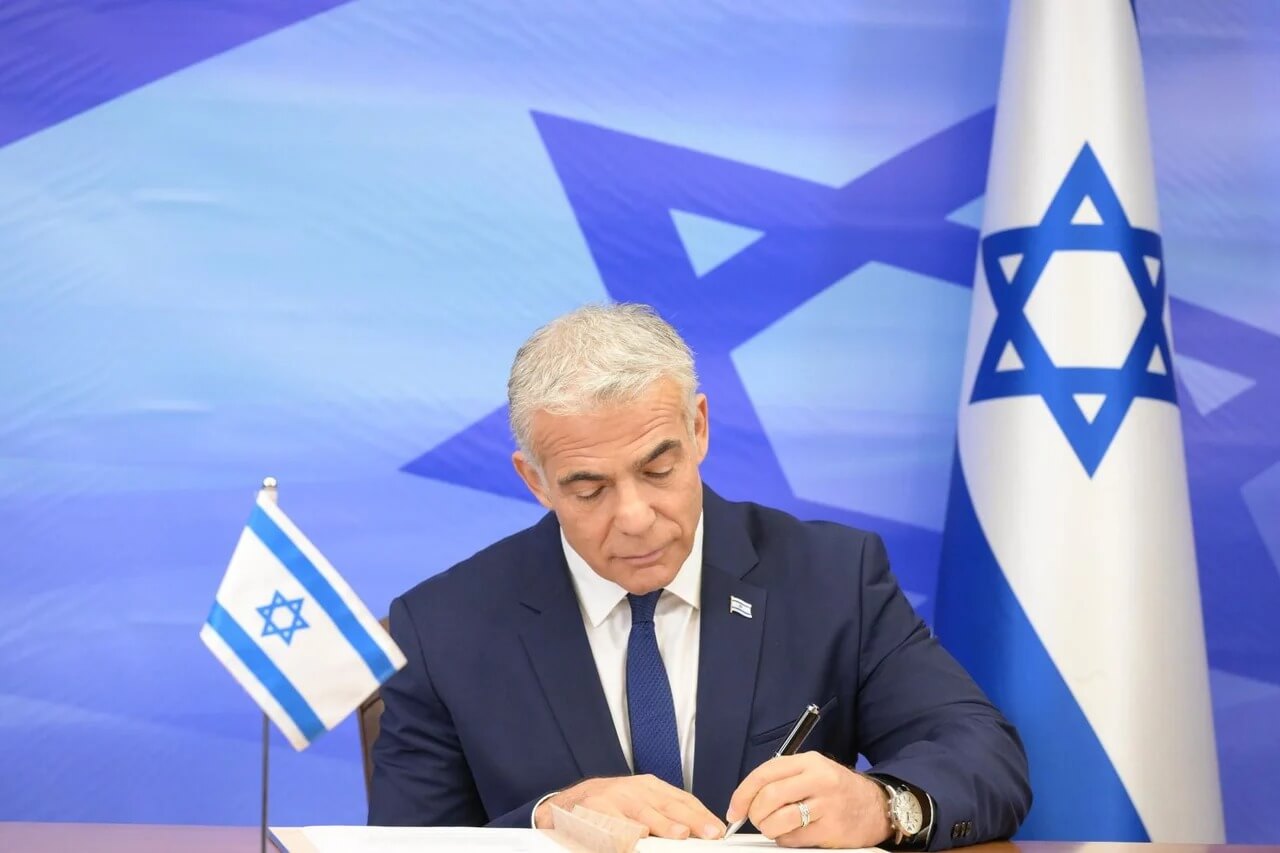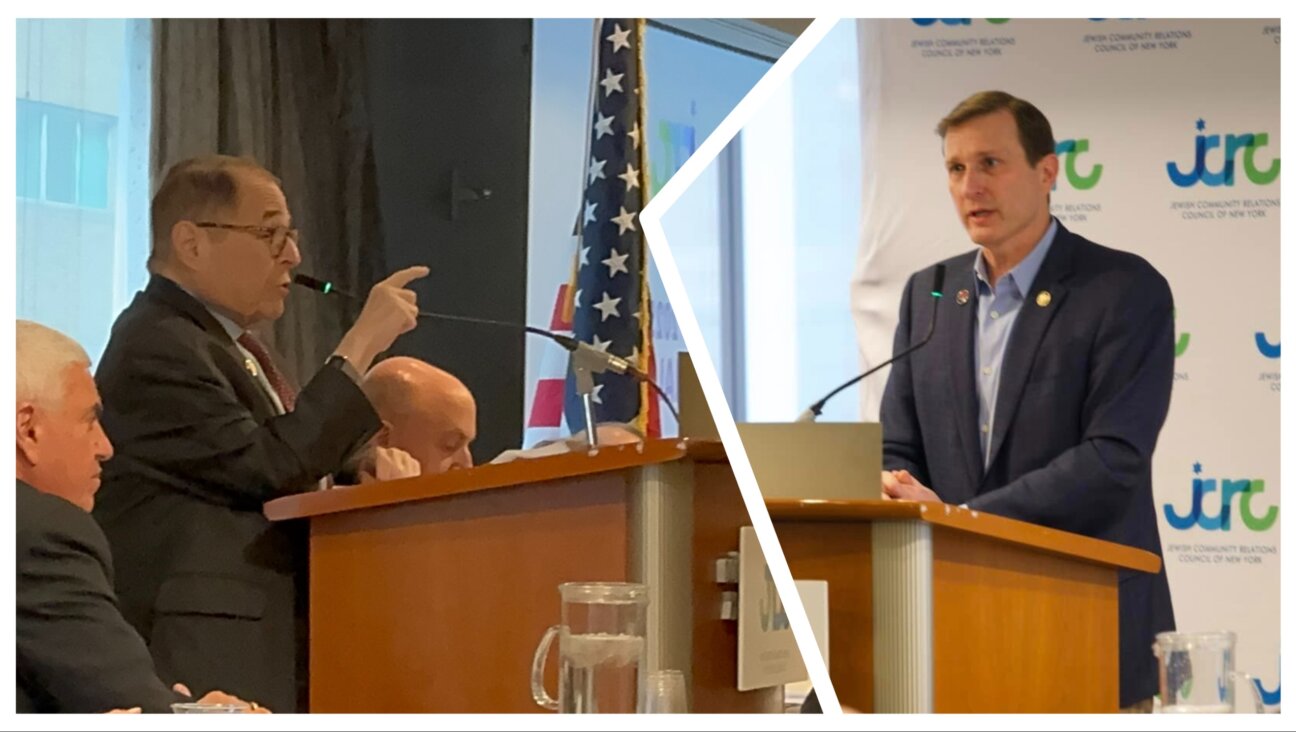Israel and Lebanon sign maritime border deal
‘There is a rare consensus among all security organizations on the importance of the agreement,’ Israel’s Lapid said in a special cabinet meeting ahead of the official signing of the border agreement with Lebanon

Israel’s Prime Minister Yair Lapid signing the maritime deal with Lebanon. Photo by Amos Ben-Gershom/GPO
This article originally appeared on Haaretz, and was reprinted here with permission. Sign up here to get Haaretz’s free Daily Brief newsletter delivered to your inbox.
Prime Minister Yair Lapid on Thursday signed the maritime agreement with Lebanon at a special cabinet meeting, officially demarcating the previously contested sea border between the countries.
Interior Minister Ayelet Shaked was the only cabinet member to vote against the agreement.
Ahead of the meeting, Prime Minister Yair Lapid said the U.S.-brokered deal “strengthens and fortifies Israel’s security and freedom of action against Hezbollah and the threats from the north.”
“There is a rare consensus among all security organizations on the importance of the agreement. [They] all approve of the deal and its contribution to Israel’s security and our operational needs. It is not every day that an enemy state recognizes the State of Israel, in a written agreement, in front of the entire international community,” he added.
Lebanon officially signed the maritime border deal earlier on Thursday, according to the Lebanese negotiator in the talks.
Lead negotiator Elias Bou Saab says the final version of the maritime deal, which sets the ground for natural gas production and exploration, was signed by Lebanese president Michel Aoun and sent to the UN with the new coordinates of Lebanon’s maritime border with Israel.
Saab says the signing of the agreement marks a “new era”, with the U.S. envoy, saying it can be an “economic turning point for Lebanon,” but added that “if one side violates the deal, both sides lose.”
Ahead of the deal’s signing, Israel’s Cabinet authorized the Energy Ministry’s director general as well as the deputy accountant general to represent the government in negotiations with French company Total on royalties from future gas production at the Kana reservoir.
According to a statement from the Prime Minister’s Office, a small ceremony will be held at the UN base in Naqoura in Lebanon with the participation of the Israeli and Lebanese delegations.
The ceremony will be closed to the media, and it is not clear whether the two parties will shake hands and whether joint photos from the event will be published. American mediator Amos Hochstein, who drafted the agreement and managed the contacts between the two parties, will also participate in the ceremony.
PM Lapid signed the Israeli copy of the agreement Thursday in Jerusalem, and it will be delivered to a UN representative by a delegation led by the Director General of the Ministry of Energy, Lior Schillat, who is officially the head of the negotiating team with Lebanon.
Israel and Lebanon have reached a “historic agreement” on the final draft of the U.S.-mediated maritime border deal two weeks ago, which both countries said satisfies their demands.
A message from our Publisher & CEO Rachel Fishman Feddersen

I hope you appreciated this article. Before you go, I’d like to ask you to please support the Forward’s award-winning, nonprofit journalism so that we can be prepared for whatever news 2025 brings.
At a time when other newsrooms are closing or cutting back, the Forward has removed its paywall and invested additional resources to report on the ground from Israel and around the U.S. on the impact of the war, rising antisemitism and polarized discourse.
Readers like you make it all possible. Support our work by becoming a Forward Member and connect with our journalism and your community.
— Rachel Fishman Feddersen, Publisher and CEO




















